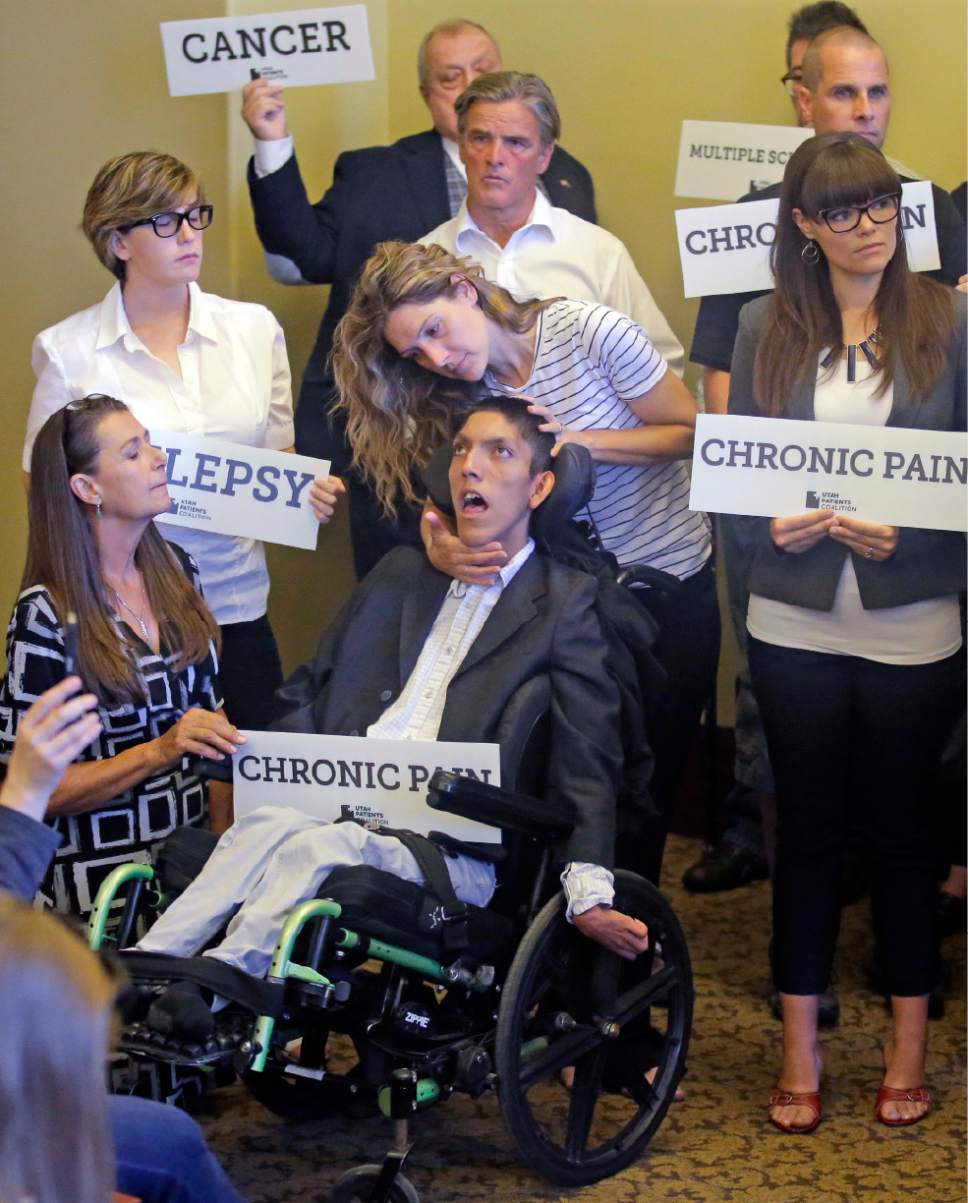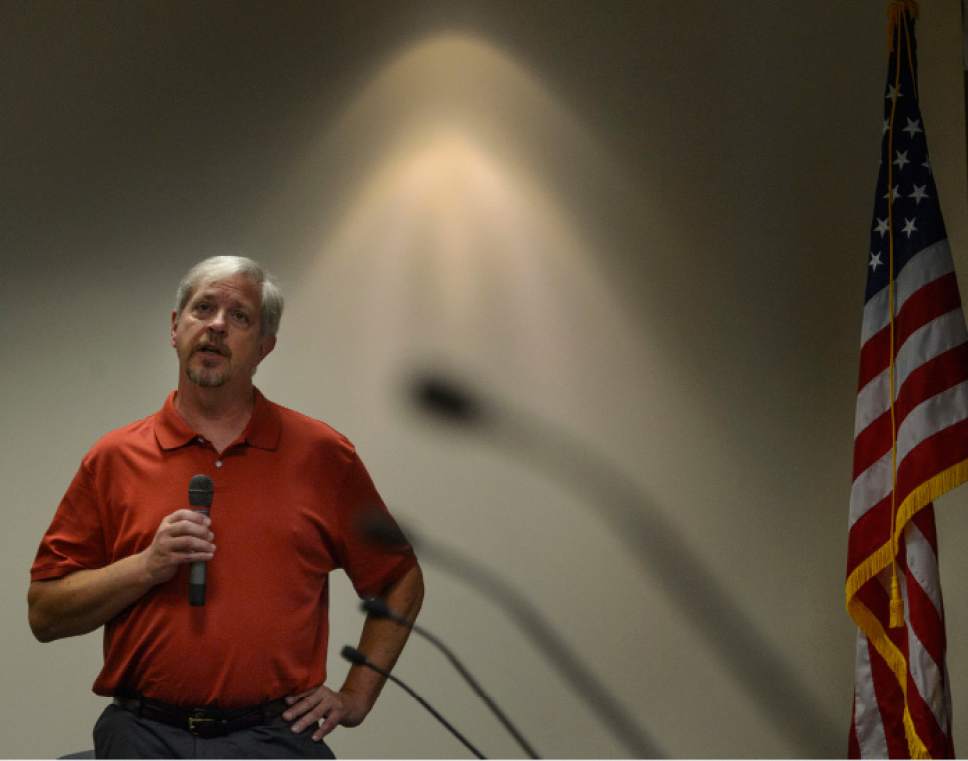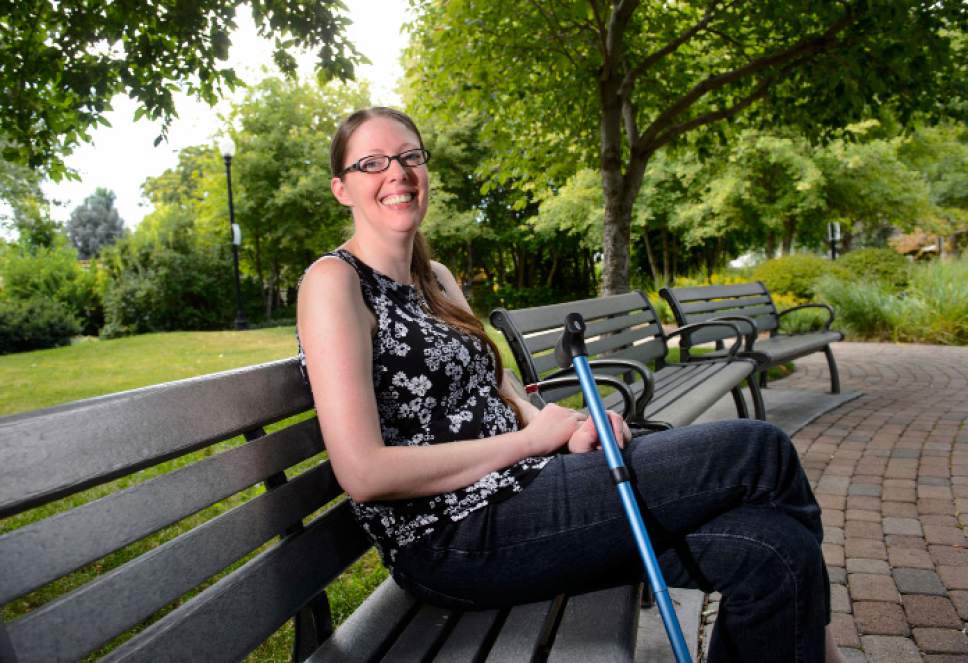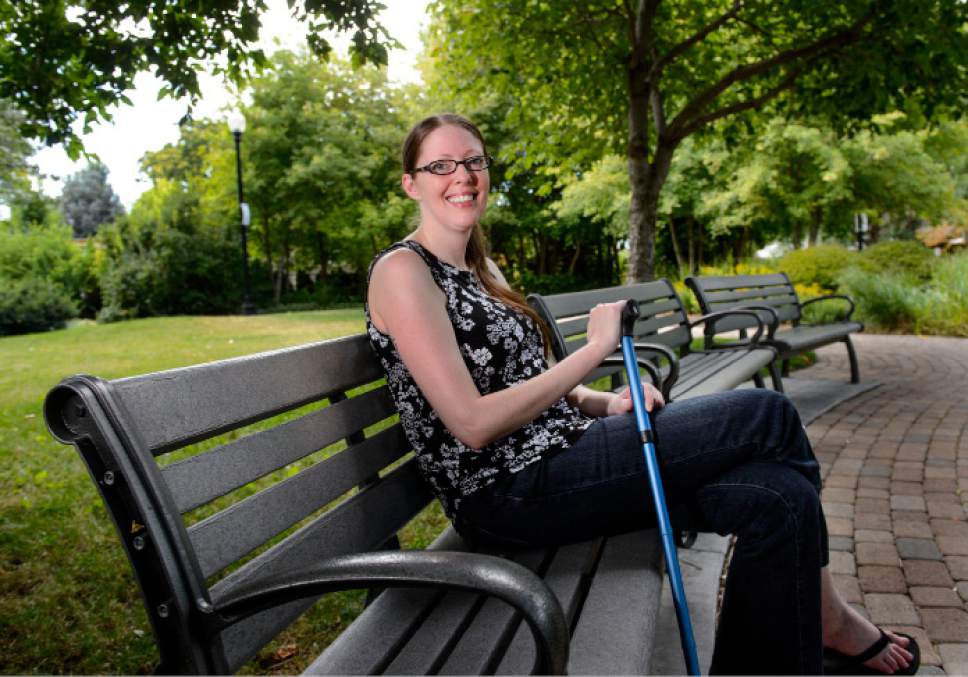This is an archived article that was published on sltrib.com in 2017, and information in the article may be outdated. It is provided only for personal research purposes and may not be reprinted.
Amanda Ellis-Graham's multiple sclerosis was once so bad she could barely hold a pencil.
She suffered from vision and hearing problems. Walking was nearly impossible because of terrible vertigo. Numbness and a sensation of pins and needles slowly spread through her body.
Ellis-Graham, now 37, was 18 when she was diagnosed with MS, a debilitating disease in which the body's immune system attacks and eats away at the protective sheath that covers nerve cells.
The symptoms forced her to drop out of Weber State University and sent her on a path of frequent prescription drug use. Doctors told her she needed to cut back, she said, but she couldn't.
Finally, Ellis-Graham said, she'd had enough. She's been using medical marijuana for more than three years now, she added, and the difference is incredible.
"Before cannabis, I was suicidal. I didn't leave my house unless I had a doctor appointment: That is not a life," Ellis-Graham said. Now, she added, "I can walk straight. ... I can drive a car. Medical cannabis has definitely helped."
It stands to reason, then, that the Sugar House resident is in favor of a proposed 2018 ballot initiative that would legalize medical marijuana in Utah. And a new Salt Lake Tribune-Hinckley Institute of Politics poll shows that 77 percent of Utah voters somewhat or strongly support it as well.
That relatively high level of backing isn't surprising to medical-marijuana advocate Christine Stenquist. The people of the Beehive State, she said, "are ready for this issue."
The proposed initiative, filed in June by a group called the Utah Patients Coalition, would allow the use of medical marijuana in the form of topicals, oils and edibles for qualifying illnesses such as Alzheimer's disease, cancer, MS, post-traumatic stress disorder, chronic pain and autism. Smoking marijuana, driving while intoxicated by medical cannabis and all public use would be prohibited.
This past week, the coalition held 10 public hearing across the state on the proposal. Supporters must now collect 113,143 signatures from registered voters — which need to be submitted to the state by April 15 — to get the question of legalizing medical marijuana on the November 2018 ballot.
A state-commissioned analysis showed that the proposed law would run Utah $400,000 per year, after startup costs of $1.1 million.
"I'm looking forward to seeing how it pans out," said Stenquist, president and co-founder of Together for Responsible Use and Cannabis Education (TRUCE). "I'm optimistic."
The poll results come shortly after four-time cancer survivor Jon Huntsman Sr. publicly announced he would "love to" try medical marijuana. Huntsman has polymyalgia rheumatica, which causes severe pain in the shoulder and hip joints, and he said opioids do nothing to combat his pain.
"From national research and understanding," Huntsman said in an early July statement to The Tribune, "the side effects of medical marijuana are considerably less than virtually all opioids and therefore less destructive to the body."
The poll, conducted by Dan Jones & Associates, found that more than three-fourths of both men and women support the initiative. About 65 percent of Republicans back the measure, the poll found, compared to about 97 percent of Democrats who favor it.
The survey has a margin of error of plus or minus 3.95 percentage points.
Rep. Brad Daw, R-Orem, said he has seen similar levels of support among his constituents. But the difference, he said, is that his district wants strictly regulated medical marijuana usage. And he believes the ballot initiative is too broad.
"The fact that they want the initiative doesn't surprise me," Daw said. "However, I think once they understand what's in the initiative, they will pull back."
Support for medical marijuana appears to be rising. A Tribune-Hinckley Institute poll commissioned in January found that 54 percent of Utah voters somewhat or strongly approved of legalization, while some 43 percent somewhat or strongly disapproved.
July's poll found that 20 percent somewhat or strongly oppose the proposed ballot initiative.
Utah lawmakers this past session decided against legalization, given the uncertainty of whether President Donald Trump's administration will enforce federal marijuana laws.
Instead, they passed measures to fund research in Utah into medical marijuana's potential benefits.
State lawmakers tried to legalize medical marijuana last year with two dueling bills, but a compromise proposal failed in the session's final hours when legislators found that there was no money to implement the program.
Lawmakers did, however, pass a law in 2014 that allows Utahns with severe epilepsy to import whole-plant cannabidiol extracts from states where medical marijuana is legal.
Under that law, the Utah Department of Health issues hemp extract registration cards to qualified individuals. From July 2014 to October 2016, 166 cards were issued, according to a department report.
As of July, 29 states and Washington, D.C., have legalized medical marijuana in some way, according to the National Conference of State Legislatures.
For Ellis-Graham, that raises hope that Utah will similarly decriminalize medical marijuana use.
"I don't like being a criminal in the state I live in," she said. "We are almost surrounded [by states that allow it]. It's just mean at this point."
Editor's note: Paul Huntsman, a son of Jon Huntsman Sr., is the owner and publisher of The Salt Lake Tribune.
Twitter @alexdstuckey









